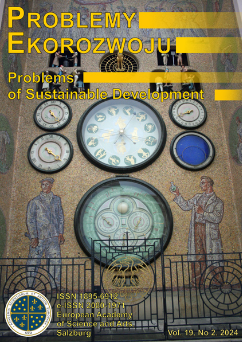Analysis of Child Marriage and Related Policies in Indonesia: Sustainable Development Issue
Noverman Duadji
noverman.duadji@fisip.unila.ac.idDepartment of Public Administration, Faculty of Social and Political Science, Universitas Lampung, Bandar Lampung (Indonesia)
https://orcid.org/0000-0002-1459-8045
Novita Tresiana
Department of Public Administration, Faculty of Social and Political Science, Universitas Lampung, Bandar Lampung (Indonesia)
https://orcid.org/0000-0001-7273-2663
Abstract
Child marriage is a prevalent social problem in developing countries, including Indonesia, and its implementation has been prohibited in all regions of Indonesia. The revision of the marriage law that lifts up the minimum age limit for child marriage and the implementation of the child protection policy does not inevitably guarantee that the practice of child marriage can be avoided. The research objective of this study was to analyze the success of the factors and the effectiveness of the implementation of policies on handling the practice of child marriage in achieving sustainable goals in Indonesia. Data collection was performed using a profile approach utilizing data from the National Development Planning Agency of 2016-2019, desk review of the literature, and stock-taking of relevant research studies. Moreover, the effectiveness of policy implementation is assessed using a contingency analysis of the factors of policy commitment and government capacity. The results showed that the effectiveness of policy implementation from the factor of policy commitment was performed through the integration of the goals of SDGs into the national strategy for preventing child marriage, enforcement of main policy changes, mapping of regional-based issue trends and root causes, mapping of regional-level derivative policies issued before main policy revision changes, harmonization and synchronization of various policies through derivative policies, planning and development at the regional and village levels. Adjustment in the factor of implementation capacity of policy is indicated by institutional convergence and synergy of various parties, including learning from various good practices in the regions. The contingency matrix-based policy application model for handling the practice of child marriage will be effective if it utilizes a progressive model.
Keywords:
child marriage, changes in policy implementation, SDGs, elimination of harmful practices for children, Indonesian territoryReferences
ACEITUNO A.J., PETERSON G.D., NORSTROM A.V., WONG G.Y., DOWNING U.S., 2020, Local Lens for SDG Implementation: Lessons From Bottom-Up Approaches in Africa, Sustainability Science, 15: 729-743.
DOI: https://doi.org/10.1007/s11625-019-00746-0
Google Scholar
AHONSI B., FUSEINI K., NAI D., GOLDSON E., OWUSU S., NDIFUNA I., HUMES I., TAPSOBA P.L., 2019, Child marriage in Ghana: Evidence from a multi-method study, BMC Women's Health, https://doi.org/10.1186/s12905-019-0823-1.
DOI: https://doi.org/10.1186/s12905-019-0823-1
Google Scholar
AJIDE O.E., STRACHAN P.A., RUSSEL A., JONES D.R., 2017, Sustainability, Corporate Community Engagement and Enterprise Development – Lessons from a Case Study in Emu-Ebendo NigerDelta, Nigeria, Problemy Ekorozwoju/ Problems of Sustainable Development, 12(2): 59-67.
Google Scholar
ALIGICA P.D., 2006, Institutional and stakeholder mapping: Frameworks for policy analysis and institutional change, Public Organ. Rev., 6(1): 79-90.
DOI: https://doi.org/10.1007/s11115-006-6833-0
Google Scholar
AL MAMUN M.A., 2019, An Analysis of Employee Awareness on Green Human Resource Management Practices: Evidence from Bangladesh, Human Resource Management Research.
Google Scholar
ASTRID A.F., 2019, Advocacy Journalism on Wedding Issues of Children in South Sulawesi, Commodification Journal.
Google Scholar
Authors
Noverman Duadjinoverman.duadji@fisip.unila.ac.id
Department of Public Administration, Faculty of Social and Political Science, Universitas Lampung, Bandar Lampung Indonesia
https://orcid.org/0000-0002-1459-8045
Authors
Novita TresianaDepartment of Public Administration, Faculty of Social and Political Science, Universitas Lampung, Bandar Lampung Indonesia
https://orcid.org/0000-0001-7273-2663
Statistics
Abstract views: 147PDF downloads: 136
License

This work is licensed under a Creative Commons Attribution-ShareAlike 4.0 International License.








